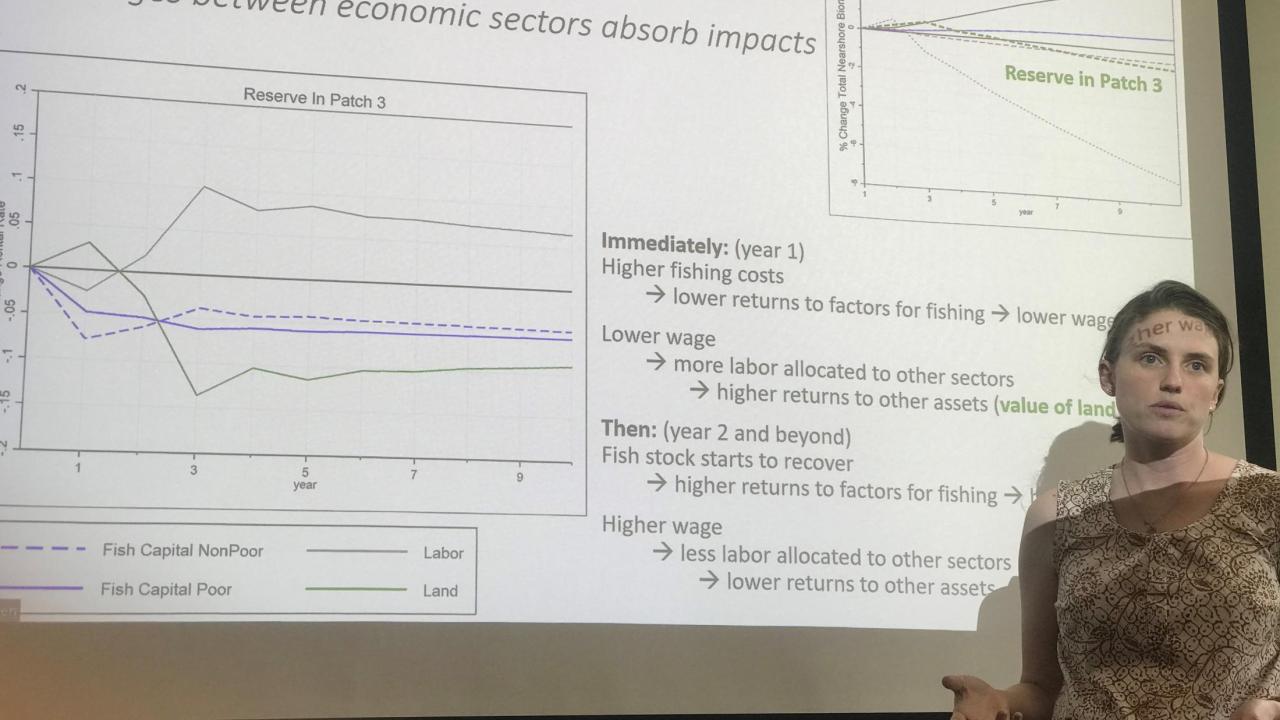
Lab Seminar - Marine reserves in rural coastal economies: a local general equilibrium analysis
Amanda Lindsay presented her research on marine reserve. Reserves and protected areas are often touted as tools to achieve both conservation and poverty alleviation objectives in developing countries. However, spatial distribution of resources and community characteristics are fundamentally important to understanding patterns of exploitation, and ability of reserves to achieve these dual objectives. Economics costs incurred by fishermen are a function of distance to other fishing areas and opportunity cost of labor. The costs associated with a marine reserve will be distorted by local market imperfections, such as local labor and capital market failures, that are common to rural economies. When local market failures exist, prices of some goods are endogenous to local supply and demand, and all households – not just fishing households – will be impacted by a reserve. This research uses a spatially explicit general equilibrium model to examine the environmental and economic effects of marine reserves in rural coastal economies in a developing country.